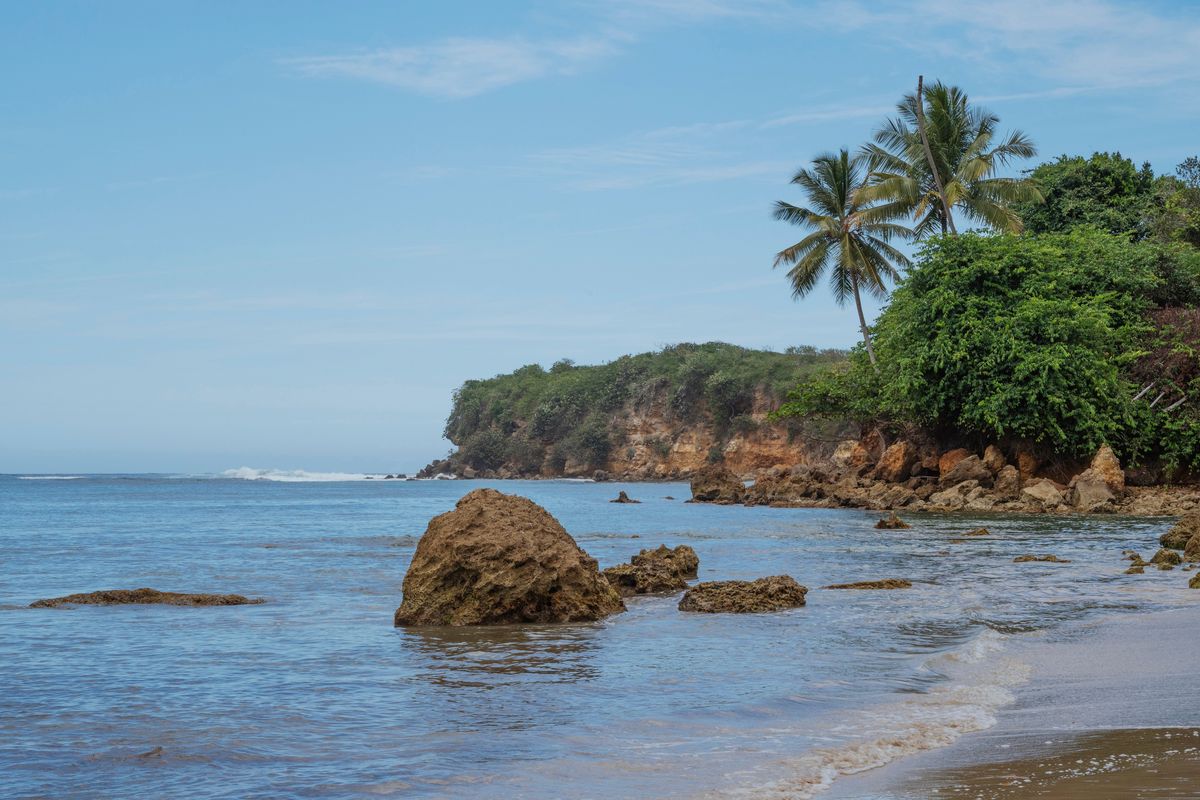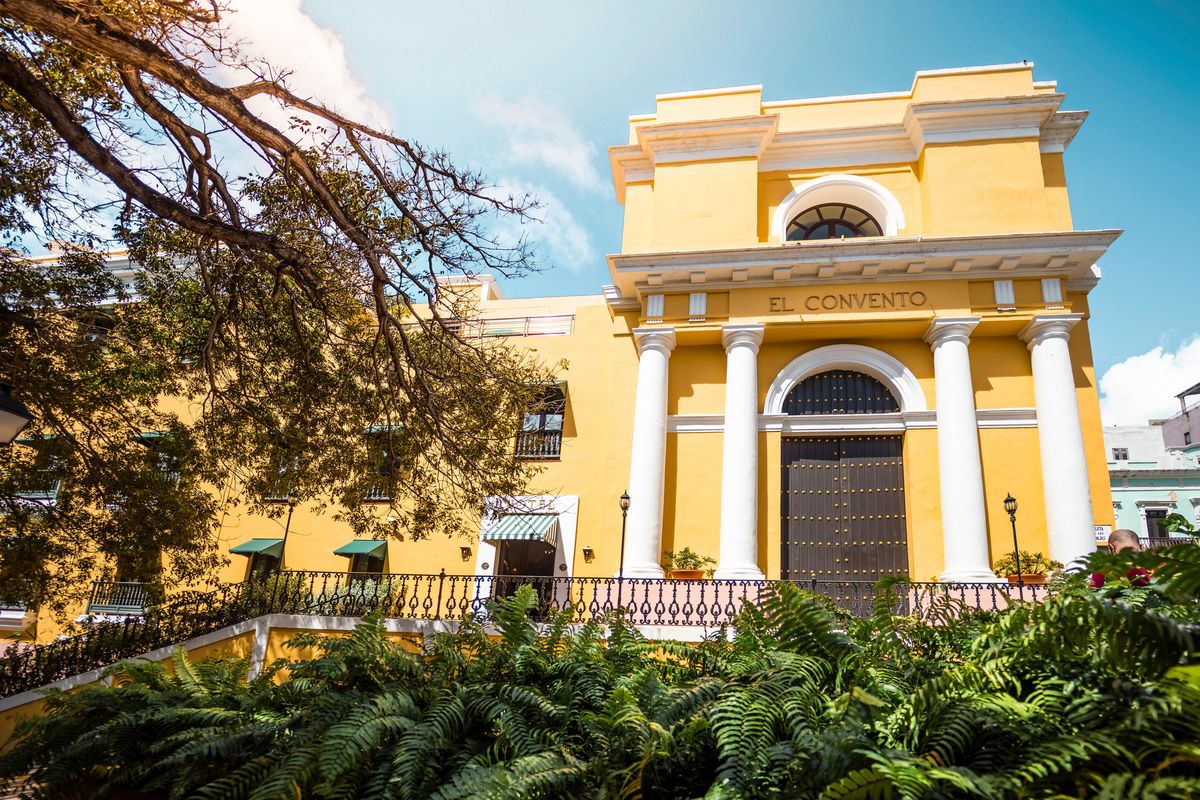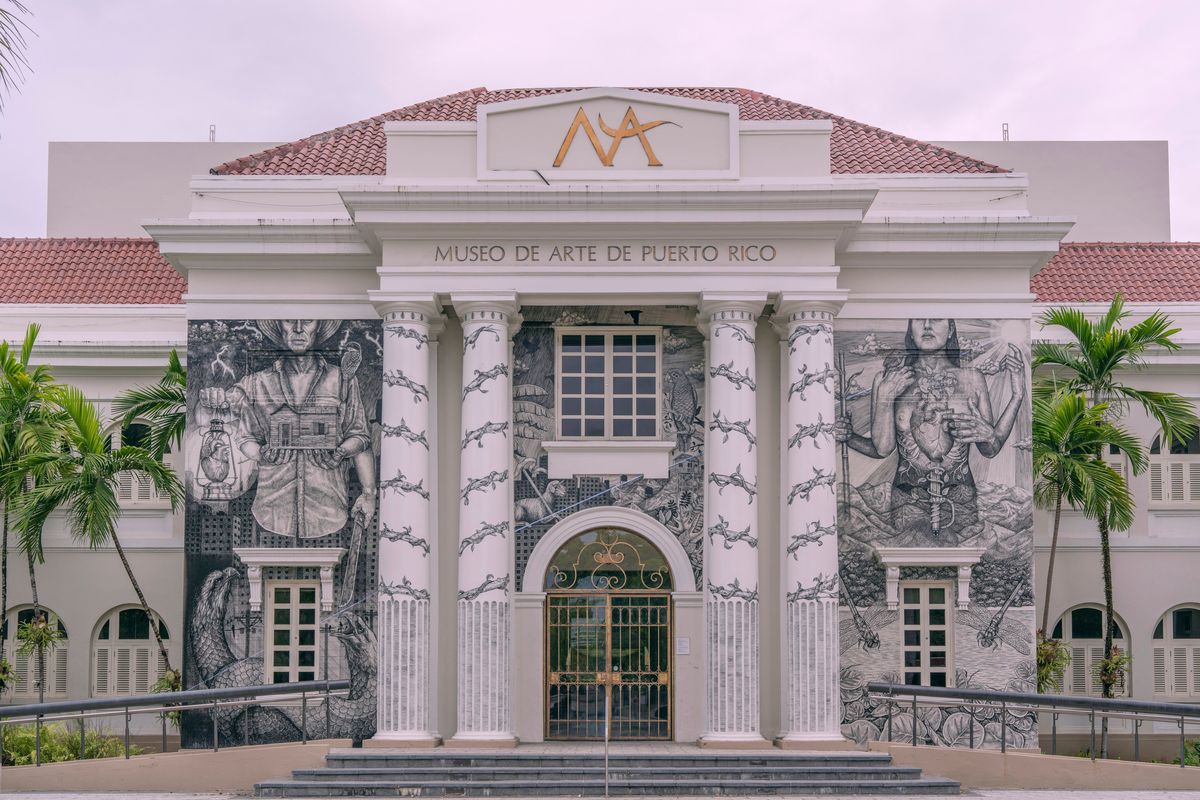Lin-Manuel Miranda’s San Juan, Puerto Rico
Above: The Hotel El Convento is a former convent building that dates to the 17th century, in Old San Juan, Puerto Rico. (Courtesy of HOTEL EL CONVENTO)
“When I was a kid, my bond was really with my grandparents,” said Lin-Manuel Miranda, a songwriter, actor, director and producer. “I would go to Puerto Rico with my family for a month every year. As my sister and I got older, I guess you could say we got sent there for a month a year.”
Those months went on to inform Miranda’s taste in food, art and culture. “I didn’t stay in a hotel, I stayed in town, I ate Puerto Rican food. That’s different than being a tourist.”
Over the years, Miranda has become one of the most prominent advocates for Puerto Rico. Next month, he will bring his musical “Hamilton” back to San Juan’s Centro de Bellas Artes Luis A. Ferré for two weeks, hosting a fundraiser to support the Hispanic Federation and the Flamboyan Foundation, a charity devoted to educational equity in Puerto Rico.
Miranda’s San Juan is one with a lot of history and authenticity – and, of course, one that leans heavily into the arts, including two places of special importance to the composer: Placita de Güisin, a community space with shops and food, and Galería Lin-Manuel Miranda, with exhibitions dedicated to Miranda’s art and his family history. Miranda has donated most of his awards – Tonys, Grammys, a Pulitzer – to the Galería. With one notable exception.
“For Christmas, my dad gave me the Emmy I won for ‘Hamilton’ – it got sent to his house nine months prior. He was like, ‘We found it was in our house, so merry Christmas!’ I was like, ‘Your gift is an award I won?’” said Miranda, laughing so hard he had trouble getting the words out. “So I still have the ‘Hamilton’ Emmy … because I got it for Christmas.”
Here are five of Miranda’s favorite places to visit in and around San Juan.
Hotel El Convento
When he was a “young, almost adult,” Miranda said, “I would rent a car and drive around Old San Juan myself and just take it all in – the colonial buildings, the cobblestone streets.”
One of those buildings was also one of his favorite luxury hotels: Hotel El Convento, a former convent that dates back to the 17th century. It’s a “charming hotel overlooking the bay,” he said, adding that “the hotel’s Spanish Colonial architecture serves as a reminder of the archipelago’s past.” It’s also “steps from the beating heart of the city’s nightlife and historic sites.”
Centro de Bellas Artes Luis A. Ferré
A few years ago, Miranda performed “Hamilton” in the theater of the Centro de Bellas Artes Luis A. Ferré and recently returned for the unveiling of a new mural by Éktor Rivera, dedicated to Rita Moreno. “It is gorgeous,” he said of the center. “I saw a production of ‘West Side Story’ there, and there’s always something going on.”
“When we were doing ‘Hamilton,’ there was a kid’s Christmas production sharing backstage space with us – you really feel part of the theater community on the island when you’re there,” he said.
Cerro Gordo Beach
“This is where all my childhood summer pictures are,” said Miranda of the generous stretch of sand in Vega Alta about half an hour from the center of San Juan. He would spend most of his time at his grandparents’ house while they worked, but occasionally in summer, “we’d go to the beach – and it’s beautiful. It’s my childhood beach.”
The ocean lapping at these shores is especially gentle. “The waves are so chill, you can let the kids and the dog run around, and it’s so easy to get into and out of the water in Puerto Rico. I just see that coastline, and it’s home.”
Café Manolín
“Cafe Manolín is the best example of great Puerto Rican food,” Miranda said of the upscale diner in Old San Juan that he counts as a recent discovery – “it’s already my new old hang,” he said. “You’re going to get plantains in some form, whether you want them sweet as maduros or salted and fried. You’re going to get a rice – could be white rice, it could be brown rice. And you’re going to get beans – you could get red beans, you could get black beans, you could get lentils.”
“Those are the food groups in my experience in Puerto Rico: rice, beans, plantains, meat,” he said. “For me: white rice with red beans and maduros – I like plantains sweet – and chicken or steak chicharrones.”
The Puerto Rico Museum of Art
For years, Miranda has been active in raising money for the arts and arts organizations in Puerto Rico, and “one of the things we discovered was that there’s a treasure trove of Puerto Rican art from the 17th century onward that was just sitting in vaults,” he says. “Not a lot of it is being displayed.”
The Puerto Rico Museum of Art, in the Santurce neighborhood, opened in 2000, although the new permanent collection didn’t open until 2019. “They have an exhibit from the 17th century to current masters, and you really see a through line,” Miranda said. “It’s wild to see techniques that were celebrated all over the world and how they manifested in Puerto Rico, with a local Puerto Rican flavor – even in a portrait of a governor from the 17th century.”
This article originally appeared in The New York Times.






